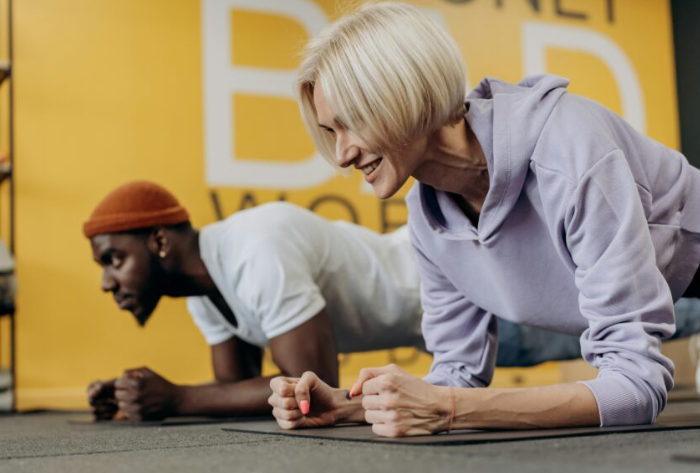In the bustling world of fitness and wellness, a tràner stands as a beacon of guidance and motivation. Picture this: You walk into a gym a space filled with clanging weights whirring treadmills and determined individuals. Amidst this energetic chaos, your eyes lock onto a figure the fitness trainer. But who is this person and what magic do they weave?
The Story Begins
Our protagonist—the tràner—is no ordinary fitness enthusiast. They are seasoned professionals a compass for those navigating their fitness journeys. Whether you’re aiming to sculpt your physique boost your health or conquer a marathon the fitness trainer is your steadfast companion.
The Role of a Tràner
Expertise: The tràner possesses a treasure trove of knowledge. They understand the intricacies of exercise physiology nutrition and goal-specific training. Their expertise extends beyond mere reps and sets; it delves into the science behind each movement.
Motivation: Ever faced a daunting workout? The fitness trainer transforms sweat into inspiration. They ignite the fire within pushing you to surpass your limits. Their words resonate: “One more rep. You’ve got this!”
Personalization: No cookie-cutter routines here! The fitness trainer tailors workouts to your unique needs. They consider your goals limitations and preferences. It’s like having a bespoke fitness suit stitched just for you.
The Journey with a Tràner
Imagine early mornings—the gym’s fluorescent lights flicker to life. You meet your fitness trainer a beacon of encouragement. Together you conquer weights and conquer doubts. They adjust your form celebrate your progress and remind you that consistency breeds results.
Tips for Finding the Right Tràner
Finding the right fitness trainer is crucial for a successful fitness journey. Here are some tips to guide you:
Credentials and Certifications: Look for a fitness trainer with relevant certifications. Certifications from reputable organizations (such as NASM ACE or ACSM) indicate their knowledge and commitment to professional standards.
Experience: Seek a fitness trainer with experience in your specific fitness goals. Whether it’s weight loss strength training or sports performance someone who has worked with similar clients can provide valuable insights.
Specializations: Consider any specializations the fitness trainer might have. Do they focus on functional training yoga or corrective exercises? Choose based on your interests and needs.
Personality Fit: Your fitness trainer should motivate and inspire you. Meet them in person or virtually to gauge their communication style energy and compatibility.
Client Reviews: Check online reviews or ask for references. Positive feedback from other clients speaks volumes about their effectiveness.
Assessment Process: A good fitness trainer will assess your fitness level discuss your goals and tailor a personalized plan. Avoid anyone who offers a generic program without understanding your needs.
Communication Skills: Effective communication is key. Your fitness trainer should listen actively explain exercises clearly and adjust as needed.
Availability and Schedule: Ensure their availability aligns with your preferred workout times. Consistency matters!
Professionalism: Look for punctuality reliability and professionalism. A committed fitness trainer respects your time and commitment.
Trial Session: Consider a trial session before committing. It’s a chance to experience their coaching style firsthand.
Remember the right tràner isn’t just about knowledge; it’s about building a supportive partnership. Trust your instincts and find someone who empowers you on your fitness journey!
Red flags to watch out for when choosing a Tràner
When selecting a fitness trainer keep an eye out for these red flags:
Lack of Certification: Ensure your fitness trainer is certified and qualified. Look for credentials from reputable organizations like NASM ACE or ACSM1. Instagram followers don’t guarantee expertise.
Poor Communication: If they don’t listen or seem indifferent to your needs it’s a warning sign. A good fitness trainer should understand your expectations and be open to communication.
Supplement Recommendations: Be cautious if your fitness trainer suggests various supplements. Supplements should only be advised by a physician, not a fitness coach.
Assess a tràner’s knowledge during an initial Meeting
When meeting a tràner for the first time here are some ways to assess their knowledge:
Assessment Phase: Expect your initial session to involve an assessment. The fitness trainer will gather information about your current fitness level medical history and specific goals or limitations. This might include measurements body composition analysis and discussions about your exercise history and preferences.
Ask Questions: Inquire about their certifications experience and areas of specialization. A knowledgeable fitness trainer will confidently discuss their qualifications and expertise.
Goal Alignment: Discuss your fitness goals and observe how well the tràner tailors their responses. Are they attentive and focused on your unique needs?
Communication Skills: Pay attention to their ability to explain concepts clearly. A skilled tràner can break down complex information into understandable terms.
Conclusion: Beyond Dumbbells and Treadmills
As our tràner bids farewell remember this: They’re more than a stopwatch-clicking guide. They’re architects of transformation sculpting not only bodies but also resilience and determination. So next time you spot a tràner nod in appreciation—they’re the unsung heroes of fitness.





